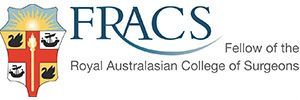Gastric Sleeve
What is Gastric Sleeve Surgery?
Gastric Sleeve Surgery, also known as Sleeve Gastrectomy, is a surgical procedure performed for weight loss. It involves removing a large portion of the stomach (around 75-80%) and creating a narrow, banana-shaped "sleeve" from the remaining tissue. This significantly reduces the stomach's capacity, leading to a feeling of fullness after consuming smaller amounts of food. There are significant changes to hormones that regulate hunger and satiety following this procedure. All these factors contribute to weight loss.
Is Gastric Sleeve Surgery the Right Choice for You?
Due to this operation's excellent safety and effectiveness, most patients who undergo weight loss surgery have a sleeve gastrectomy. Having a sleeve gastrectomy does not change the passage of food in a significant way and has fewer long-term considerations than a bypass.
Being such a safe procedure, it is appropriate for most patients, including those with other medical conditions or older ones. Sometimes, the sleeve gastrectomy may be offered as the first of two planned procedures for patients with a very high BMI.
Who is a Candidate for Gastric Sleeve?
Many patients will be good candidates for a sleeve gastrectomy. If you get severe reflux regularly, your surgeon will likely advise an alternative, as a sleeve gastrectomy can worsen reflux symptoms for some patients. Our surgeons will assess you thoroughly before surgery to ensure a sleeve gastrectomy is the best option.
Expected Weight Loss
For those who diligently follow post-operative recommendations, Gastric Sleeve typically leads to an average weight loss of around 1 kilogram per week until the patient's body weight reaches a healthier range. Following this procedure, you can expect to lose 60-70% of your excess weight.
Remember that everyone is different. Many people want to compare their weight loss to others who have undergone the same operation. Remember, you are running your race. Our surgeons are here to help you get the best outcome you can.
Benefits of Gastric Sleeve
This procedure offers numerous advantages, including:
- Rapid and significant weight loss, comparable to that achieved through the Roux-en-Y gastric bypass.
- It is an extremely safe procedure with very low rates of complications
- There is no need for foreign objects (like restrictive bands) or rerouting of the bowel.
- Short hospital stay, usually around one to two days.
- Favourable changes in gut hormones that reduce hunger, suppress appetite and enhance feelings of fullness.
Tests Before Gastric Sleeve Surgery
Which tests your surgeon recommends before surgery will depend on your situation; however, some patients require only one blood test before surgery. For others, you may require additional investigations to ensure the sleeve gastrectomy is the best procedure. At Hunter Weight Loss, we usually perform a gastroscopy before a sleeve gastrectomy to assess your stomach and oesophagus before your sleeve gastrectomy. Sometimes, this is done weeks ahead of your surgery or, sometimes, on the day of your surgery.
Additional consultations or tests may be required depending on your medical history and specific circumstances. These may involve referrals to specialists such as:
- Bariatric physicians
- Endocrinologists
- Cardiologists
- Respiratory physicians
These consultations aim to comprehensively assess your overall health and determine if any other medical conditions that should be addressed before proceeding with weight loss surgery. If you are already under the care of other specialists, our team will coordinate with them to ensure a holistic approach to your treatment.
Preparation Before a Gastric Sleeve Surgery
- Preoperative Diet: To prepare for the surgery, patients must typically follow a liver-shrinking diet for two to four weeks before the procedure. This dietary adjustment helps reduce the size of the liver, making it safer for your surgeon to access the stomach during the operation. Whilst most patients will lose some weight on this preoperative diet, there is no need to worry if you don't. This diet is not designed to make you lose significant weight but to help with the surgery.
- Fasting Before Surgery: You will be given specific instructions about when to start fasting for your surgery. If you aren't given instructions or forget, don’t eat or drink after midnight the night before your surgery. This ensures your stomach is empty when you are given general anaesthesia.
- Preoperative Preparations: Before heading to the hospital, you may want to ensure you have the necessary shakes, drinks, and medications you’ll need during the recovery period. Planning can help streamline your recovery experience.
- What to Bring to the Hospital: The hospital will contact you before admission to provide detailed guidance. However, here are some items you should consider bringing with you:
- Bathroom items and personal toiletries. Comfortable clothing that is easy to put on and take off, including pyjamas, a bathrobe, and slippers
- Your regular medications
- Mobile phone, iPod, tablet, laptop, or a book for entertainment
- Avoid wearing jewellery to the hospital.
- If you have sleep apnea, bring your CPAP mask, tubing, and machine. You can use your CPAP machine the night after your surgery.
Day of the Gastric Sleeve Surgery
Before Your Procedure:
- Diabetic or pre-diabetic patients may undergo a blood sugar check
- You'll be asked to empty your bladder before entering the operating room.
- You will meet the anesthesiologist (if you haven’t already)
- You will receive an IV drip, an antibiotic, and a blood thinner shot to reduce the risk of clot formation during surgery.
- Compression stockings will be provided for your lower legs.
- You'll have a final meeting with your surgeon before entering the operating theatre. This is a great time to ask all the questions you like.
Transfer to the Operating Room:
- You will be transferred to the operating room with large ceiling lights and medical machines.
- You'll be placed on the operating table, lying flat on your back with your arms extended on armboards and covered with a blanket.
- Heart monitors will be attached to your chest.
- An oxygen monitor will be placed on your finger.
- The anesthesiologist will administer your initial anaesthetic drug through the IV, and you will gradually fall asleep.
- Once asleep, a breathing tube will be inserted to provide oxygen and anaesthetic gas throughout the procedure. You will not feel this.
Gastric Sleeve Surgery Procedure
The Gastric Sleeve procedure involves several steps:
- Small (keyhole) incisions are made on the upper abdominal wall
- Specialised surgical tools, including a camera, are inserted through these incisions.
- Approximately 70-80% of the outer section of the stomach is removed.
- A specialised stapling device is used to close the sides of the remaining stomach tube or sleeve inside the patient. This part of the stomach is not removed.
- All skin wounds are closed with hidden absorbable sutures that do not require removal, leaving a neat line when dressings are removed.
Postoperative Pain and Recovery
Pain following weight loss surgery is usually minimal as these procedures are performed laparoscopically (keyhole surgery). Immediate post-surgery sensations may include chest tightness, a stitch-like feeling in the upper abdominal area (especially on the left side, beneath the rib cage), or an ache in the left shoulder tip. These sensations typically resolve within 3-4 days and should not significantly limit your ability to sit up or walk.
Adequate analgesia will be provided both during your hospital stay and after discharge to ensure your comfort. Most patients will not require more than over-the-counter pain relievers like Panadol once they return home. You may be given antacids, anti-nausea medications and injections for blood clots to take home.
Your surgeon will give you a target amount of fluid to drink to be able to go home. This ensures that you can keep yourself hydrated when you go home.
Recovery After Gastric Sleeve Surgery
Waking Up After Surgery
Most patients wake up feeling relatively comfortable due to the minimally invasive nature of laparoscopic surgery. Any initial discomfort usually subsides quickly, and patients often regain full alertness within an hour or two.
Sometimes, patients may still experience slight drowsiness in the recovery room. Our experienced anesthesiologists are dedicated to ensuring your comfort and may utilise self-administered pain management systems when necessary. Pre-emptive analgesia, where local anaesthetic is applied before incisions, further helps in minimising discomfort.
Appetite Changes
Patients should expect changes in their appetite and eating habits following the Gastric Sleeve procedure. You'll find yourself consuming smaller portions and experiencing a reduced appetite. This shift in eating patterns will contribute to a gradual and steady weight loss over time.
Duration of Hospital Stay
Recovery times can vary from person to person and depend on individual healing and medical history. However, most patients feel well enough to be discharged within 24-48 hours after their procedure. This typically involves staying overnight or for a maximum of two nights. It's important to note that you will be discharged when you feel ready, and there is no rush to leave the hospital.
Early Mobility
We encourage patients to get up and walk around the ward as soon as they feel comfortable, often on the same day as their procedure. Early mobility helps prevent issues like blood clots and chest infections.
While you can care for most of your personal needs when leaving the hospital, you may require assistance with tasks like shopping, lifting, and transportation during the first few days of recovery.
Commitment to a Healthy Lifestyle
Recovery extends beyond the hospital stay. Patients are encouraged to adopt and maintain a healthy lifestyle, including eating nutritious foods and exercising regularly. Our dieticians are excellent sources of information and are full of advice on how to get the most out of your operation in the short and long term.
Driving After Surgery
Driving within 24 hours of undergoing a general anaesthetic is not permissible. Therefore, arrangements should be made for someone to pick you up from the hospital. Most patients typically feel ready to resume driving after about three days. However, it's important to refrain from driving until you have discontinued any strong pain medications and feel confident in your ability to respond quickly in an emergency.
Visitor Policy
Support from your spouse, significant other, parents, or a friend is highly encouraged during your hospital recovery. They can assist you by encouraging, walking, and reminding you to stay hydrated. Sometimes, one person can sleep in the hospital room with you. We advise against inviting individuals who may not be supportive of your decision to undergo bariatric surgery, and we recommend limiting the number of visitors during your hospitalisation to ensure your focus on recovery.
Eating After a Gastric Sleeve
Eating patterns will change significantly after the Gastric Sleeve surgery:
- You'll be limited to consuming only about a fifth of what you would eat prior.
- It's important to avoid drinking and eating simultaneously, as your new stomach will only accommodate one at a time.
- Following surgery, you will progress through a liquid diet, a pureed diet, and soft foods over several weeks.
- Eating slowly and thoroughly chewing your food will be essential for proper digestion
- Most patients feel less hungry and get full earlier.
Recovery after Gastric Sleeve is a journey that involves gradual adjustments to your eating habits and lifestyle. The support of our team and your loved ones is crucial in ensuring a successful recovery and long-term weight loss.
Post-Surgery Follow-Up and FAQs
The journey doesn't end with Gastric Sleeve surgery; it's just the beginning of a transformative path.
Follow-Up Appointments
Our Care Plan is designed to ensure the success of your gastric sleeve surgery. After your surgery, you'll have several follow-up appointments, including:
- Your first post-surgery visit is scheduled at around four weeks.
- Regular visits at three months, six months, and then annually.
- You will have regular access to our dieticians and psychologists when needed
- Keep your doctor informed of your recovery progress and contact them for any health concerns between visits.
These regular check-ins provide opportunities for dietary advice, health support, and progress monitoring. You'll also meet with our dieticians at various intervals whilst transitioning to the next phase of your diet, with ongoing dietetic consultations.
Many patients worry that the stomach may stretch over time, particularly if overeating becomes a habit. Generally, if your operation has been done properly, the stomach volume won’t significantly affect your weight loss. The hormone changes that follow surgery are generally the more important factor.
Complementing surgery with changes in eating behaviours, lifestyle, and exercise levels significantly reduces the chances of not reaching your goals.
Is Gastric Sleeve Reversible?
No, the Gastric Sleeve surgery cannot be reversed because a portion of the stomach is permanently removed. Many patients are attracted to this procedure because it is a more permanent solution to their weight issues.
Safety of Staples
The staples used in the Gastric Sleeve procedure are safe and have been used for over 50 years. They are essential to the procedure, and patients can rest assured that they are completely safe.
Metal Detectors and Staples
The staples used in the Gastric Sleeve procedure are too small to activate airport and security metal detectors. They are virtually invisible on medical X-rays and won’t cause issues for MRI scans
Avoiding Future Weight Gain
To prevent future weight gain, it is important to:
- Attend your follow-up appointments. We have helped many patients through the process and are here to help you.
- Utilise our dieticians for advice and guidance.
- Maintaining a healthy diet
- Regular exercise. It might have been many years since you last did a lot of exercise. Our team will guide you and can help you through the support of an exercise physiologist.
Your post-gastric sleeve journey involves ongoing care, support, and adjustments to your lifestyle. Regular follow-up appointments, proper nutrition, exercise, and patience with skin remodelling will contribute to your long-term success in achieving a healthier weight and life.






